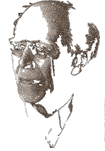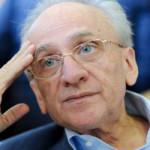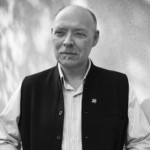Friday 18th March
17.00 onwards – Registration in Reception
The Rose Theatre
18.30 – Introduction
18.45 – Keynote Lecture: Stanislavsky in the World: the System and its transformations across continents –
Prof Jonathon Pitches and Dr Stefan Aquilina
19.30 – short break
19.45 – Stanislavski Centre/Routledge Annual Lecture: “Быть гибким”/“Be Flexible”: Stanislavski’s and Knebel’s Legacy for Today’s Actors - Prof Sharon Carnicke
21.00 – drinks
22.00 – close
Saturday 19th March
09.00 – warm-up session – Niamh Dowling (RBC)
09.30 – Coffee available
| Room LH04a
(papers)
|
Room LH02
(practical presentations and workshops) |
Room LH01
(papers) |
|
| 10.00 | Theory/History/Context
10.00 Sergei Tcherkasski – Forward to the Early Stanislavsky! Or Re: The First Studio Project 10.30 Marie-Christine Autant-Mathieu – How Nemirovitch-Danchenko interpreted Stanislavsky’s system. 11.00 Stefan Aquilina – Stanislavsky’s Use of Everyday Images in Artists and Admirers
|
Actor Training: Practical Presentations
10.00 Jay Skelton – Rehearsing the Unexpected: Creating an Integrated Rehearsal Methodology for Classical Playtexts Using Active Analysis and Viewpoints 10.45 Neil Sheffield – Acting technique & Cognitive Science
|
Devising/Rehearsing/Performing
10.00 Julia Listengarten & Lyubov Weidner – From Active Analysis to “Ludic Structures”: Acting Methodology of Anatoly Vasiliev 10.30 Joelle Re Arp-Dunham – The Cognitive Stanislavski in the Rehearsal Hall Prospectus
|
| 11.30
Break |
|||
| 11.45
|
Actor Training
11.45 Geoff Colman –Acting Real – the contemporary film actor’s approach to Stanislavsky 12.15 Ysabel Clare – A system behind the System: but is it Stanislavsky?
|
Actor Training: Practical Presentations
11.45 Kelly Handerek – Uta Hagen: Coming Under Her Spell. 12.30 Dan Barnard – Tempo-Rhythm: Uncovering the richness of Stanislavski’s original techniques (45 mins)
|
Actor Training
‘Stanislavski, Actor Training and Musical Theatre’ Panel: Merryn Owen – Musical Theatre performers: A different kind of theatre, a different kind of actor? Sherrill Gow – When Stanislavski encounters the conventions of Musical Theatre Zachary Dunbar – Investigating a paradigm shift in Stanislavski’s System through musical theatre actor training – the emotional issue
|
| 13.15
Lunch |
|||
| 14.30 | Heavy weights and global perspectives
14.30 Martin Julien –“This Paper is Stanislavskian-based” – Actor Training and English-Canada 15.00 Bernard Lavoie – Brechtian Stanislavski or Stanislavskian-Brecht? 15.30 Jonathan Pitches & Ruru Li – Stanislavsky with Chinese Characteristics: How the System was introduced into China 16.30 Break 16.45 Peta Tait – Rebellious anger: Stanislavsky & the Study of Emotion. 17.15 Giuliano Campo – After Theatre, Beyond the Self. A Pedagogy of Life from Stanislavsky to Grotowski.
|
Devising/Rehearsing/
Performing: Practical Presentations 14.30pm: Ian Watson – Adapting Adler: A Socially Engaged Theatre Practice Rooted in Personal Stories Shaped by the Stella Adler Technique.
16.30 Break 16.45 Matthieu Bellon and Luis Campos – Stanislavski’s concept of communion as musicalities of affect in the work of the theatre company Bred in the Bone
|
Actor Training
14.30 Royce Sparks – Naturally Selected: Stanislavski in the Age of Universal Darwinism’ 15.00 David Jackson – Stanislavski, Emotion and the future of the UK conservatoire 15.30 Maria Kapsali – Yoga and Stanislavski: reflections on the past and applications for the present and future
16.30 Break
|
| 17.45
Break |
|||
| 18.00 | Provocations
Rogelio Nevares-Guajardo – The Legend of the Grand Inquisitor; Stanislavski that Stanislavskians Don’t Want You to Know About. Lavinia Hollands – Stanislavski system: ubiquitous yet fragmented.
|
Workshop
Susan Brabant Baxter – Writing for the Actor: Stanislavski Teaches Playwriting.
|
Provocations
Julian Jones – Stanislavski: ‘The Way, The Truth and The Light’ – a challenge to the ‘quasi-religious’ attachment to ‘the name’ in actor training.
Tracy Crossley – Emotion Memory in Postdramatic Performance: Quarantine Theatre’s Wallflower. |
| 19.00
Dinner |
|||
| 20.15 | ROSE THEATRE
Nell Gwynne: A Dramatick Essaye on Acting and Prostitution
|
||
| 21.00 | Bar is open | ||
| 22.00 | CLOSE |
Sunday 20th March
09.00 – warm up/workshop - Dr. Sreenath Nair (University of Lincoln) Yoga
09.30 – Coffee available
| Room LH04a
(papers)
|
Room LH02
(practical) |
Room LH01
(papers) |
|
| 10.00 | Terminology
10.00 Stephane Poliakov – What is an image for Stanislavski?
10.30 Laedio Martins – Recurring Misconceptions in Stanislavski’s translations
11.00 Kathy Dacre – Metaphor, simile, myth and magic: the heady mix of the rehearsal room
|
10.00 ARTEL - Reading Stanislavsky Backwards: ARTEL’s collective creation processes as a way to understand Active Analysis
10.45 Will Wollen: Action and the Mask: Mr S and the paper bag.
|
Devising, Rehearsing, Performing
10.00 Rebecca Reaves & Maria Creasey – Staging Three Sisters: A Stanislavskian approach to postdramatic theatre-making 10.30 Sebastian Samur – Stanislavski’s Tempo-Rhythm in the 21st Century. 11.00 Sreenath Nair - Rays of Energy and Prana: An Indian Reading on Stanislavski
|
| 11.30
Break |
|||
| 11.45 | Stanislavsky in the Classroom
11.45 Tamara Guenoun – Drama-therapy with teenagers: an observatory ground of the use of Stanislavski’s system today.
12.15 Petronilla Whitfield – Grasping toward meaning; an investigation into the use of Stanislavski’s method of active analysis to enable acting students with dyslexia to access, identify and experience what is contained within the words of Shakespeare’s text.
|
Workshop
11.45 John Gillett – Is Active Analysis relevant to Shakespeare? – a workshop with actors on a piece of Shakespeare text.
|
Panel
11.45 Sarah McCormack, Georgina Graham-Williams, Rosie Hunter (Redlands School) – Taking Stanislavski and Euripides to School.
|
| 12.45
|
Screening:
Root Park and Andrew Golden - Active Analysis: A Documentary Learning Archive
|
||
| 13.15 | Buffet Lunch & networking
|
||
| 14.00 | Witness Responses/Plenary
|
||
| 15.00 | CLOSE
|
Symposium witnesses
Andy Jordan (University of Lincoln)
Niamh Dowling (Rose Bruford College of Theatre and Performance)
Adrian Giurgea (Colgate University)
Please note: The convenors and event managers reserve the right to make changes to this schedule if necessary
Co-Convenors: Prof. Bella Merlin (University of California Riverside), Prof. Paul Fryer (Rose Bruford College of Theatre and Performance).
Event Managers: Christina Cornelisse, Callum Smith



